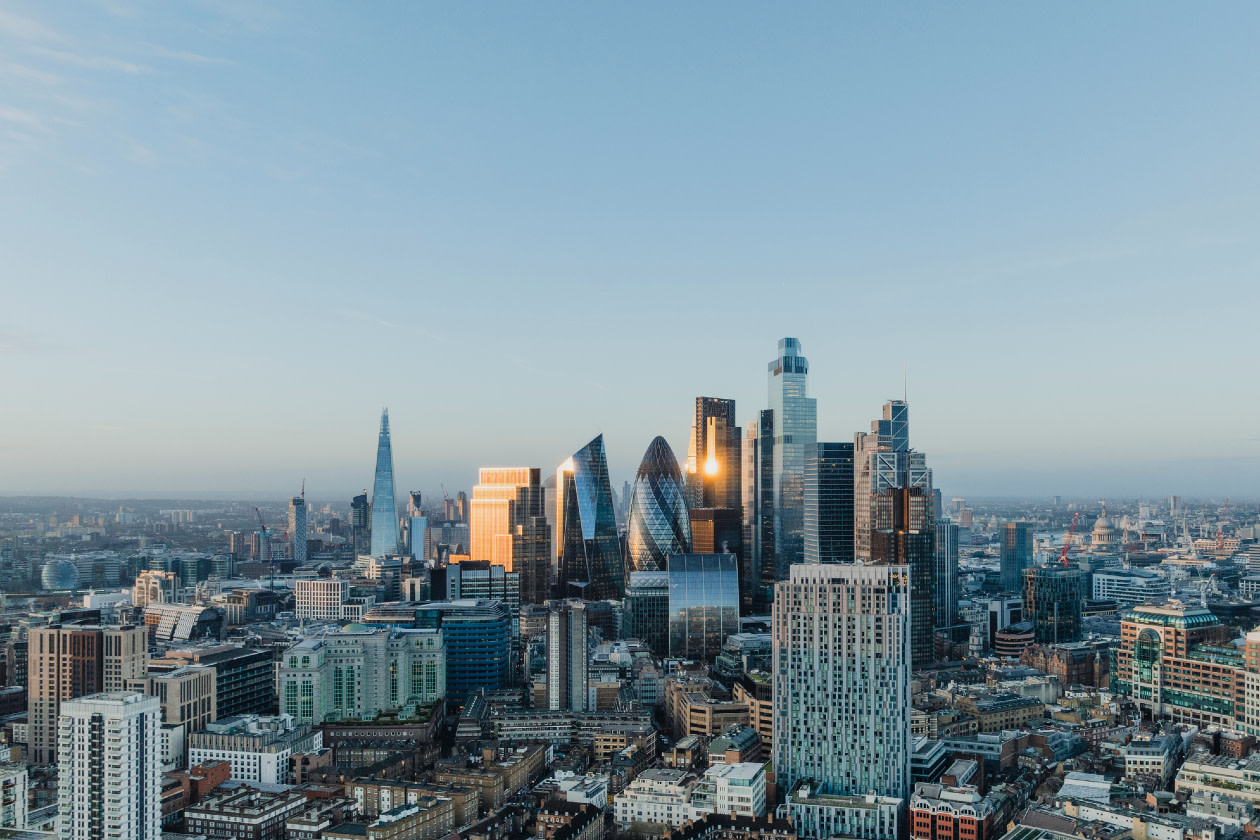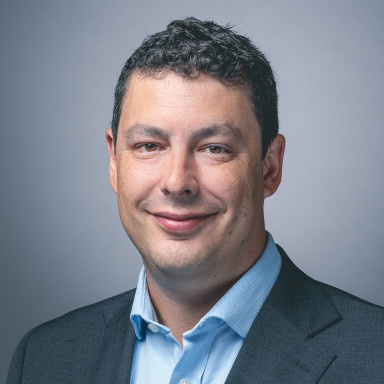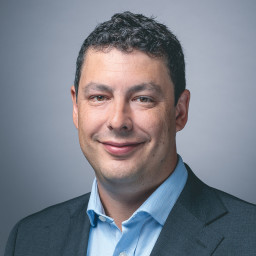We like the simple philosophy behind this trust, with the potential for long-term growth and a focus on preserving wealth in weaker markets
Co-manager Sebastian Lyon is part-owner of Troy, the home of this trust, so we think he's incentivised to perform
Lyon and co-manager Charlotte Yonge also have a good team of analysts around them to provide support on this trust
How it fits in a portfolio
Rather than trying to shoot the lights out, Personal Assets Trust aims to grow investors' money steadily over the long run, while limiting losses when markets fall. It tries to experience fewer ups and downs than the broader global stock market or a portfolio that's mainly invested in shares.
As a result, it could form the foundation of a broad investment portfolio, bring some stability to a more adventurous portfolio, or provide some long-term growth potential to a more conservative portfolio.
Manager
Sebastian Lyon took over management of Personal Assets Trust in March 2009. He's managed the trust using the same investment philosophy that was founded when Troy Asset Management started in 2000. He’s also managed the Troy Trojan Fund since its launch in 2001 – this is an open-ended fund that is invested similarly to the Personal Assets Trust. However, even though the two are similar, they will perform differently at times.
Investors in the trust should be aware that closed-ended funds can trade at a discount or premium to the net asset value (NAV). Unlike many other trusts, the board look to limit the size of the discount or premium, which typically helps to keep the share price close to the NAV.
Lyon is also Chief Investment Officer of Troy Asset Management. This position takes up some of his time, but he's previously handed over some of the day-to-day company management responsibilities to capable colleagues. This leaves him to focus more of his time on investment management.
Lyon is supported by co-manager Charlotte Yonge on the trust. Yonge carries out analysis across a range of assets and works closely with Lyon and is jointly responsible for making investment decisions for the trust.
Lyon and Yonge also have support from Marc de Vos, who was previously an investment analyst in the team but has recently been promoted to a fund manager role. While de Vos doesn’t have official decision-making responsibilities, he contributes to finding ideas for the trust and to portfolio construction discussions.
Overall, we think the team at Troy is strong, capable and stable.
Process
Lyon and Yonge like to keep things simple, a quality we like. They aim to shelter investors' wealth just as much as grow it.
To do this, the trust is constructed around four 'pillars'. The first contains large, established companies the managers think can grow sustainably over the long run, and endure tough economic conditions. They’ve tended to focus on companies based in developed markets, such as the UK and US. This includes some of the world's best-known companies with highly recognisable brands, such as Unilever and Visa. Although the trust hasn’t invested much for several years, the managers have the freedom to invest in higher-risk smaller companies.
The managers increased the amount invested in shares recently, to 36.6% at the end of the last accounting year, 30 April 2025. They added to some shares they already owned and invested in some new companies after share prices fell during the stock market volatility in April, caused by the tariff announcements in the US. They added LVMH, the global luxury goods company, and L’Oreal, the world’s largest cosmetics company. The managers have liked both companies for some time and took the opportunity to invest at a lower share price. This is a great example of how the trust’s managed and the type of companies that the team like to invest in.
The team also sold investments in Becton Dickinson & Co and Proctor & Gamble. Becton Dickinson & Co has struggled since Covid and the team feel other investments offer better opportunities. Proctor & Gamble had performed well and they felt it no longer offered as much growth potential.
The rest of the trust is made up of investments that could bring some stability during more difficult markets. The second pillar is made from bonds. 26.7% of the trust was invested in US index-linked bonds (US TIPS) at the end of April, which could shelter investors if inflation remains higher than the long-term US central bank targets. The trust also invests 1.7% in UK inflation-linked gilts, taking the total for this bucket to 28.4%. The amount invested has reduced from 39.8% over the last 12 months.
The third pillar consists of gold-related investments, including physical gold, and accounted for 10.8% of the trust at the end of April. This is slightly lower than the 12.5% invested in gold 12 months ago. Gold can act as a safe haven during times of uncertainty, or perform well when inflation rises or if key global currencies weaken.
The final pillar is cash and short-dated government bonds, where 22.9% of the trust is held. This is more than the 16.7% invested here 12 months’ ago. Within this bucket the team has recently moved some investments into the Yen, the Japanese currency. The team thinks this might provide some additional shelter during a market wobble and it adds diversification.
While the trust contains a diverse range of investments, it’s concentrated. This approach means each investment can contribute significantly to overall returns, but it can increase risk. The manager has the flexibility to use derivatives and gearing (borrowing to invest) which, if used, adds risk.
Culture
We like that Troy's fund managers are dedicated to the same investment philosophy that was established two decades ago. The group has always been clear about the way its range of funds are managed, and the managers don't stray into overly complicated areas of investment markets. Wealth preservation is key, and each manager adheres to this mantra.
Lyon is a part-owner of Troy Asset Management, so we believe he's incentivised to perform, and for his funds and the business to do well over the long term. Other senior members of the group also own a part of the business, and we think this contributes to the stability and loyalty of the team.
While Troy is home to a small, close-knit team of investors, the group has recruited more junior members over the years to boost resource and ensure the funds are left in good hands as and when more senior members retire. Despite the team’s growth we think Troy has remained a very collegiate unit with all members able to have input.
ESG integration
Troy Asset Management has been formally incorporating environmental, social and governance analysis (ESG) into its investment processes for a number of years, and it came from a strong starting point. It’s always been focused on the sustainability of returns and the fund managers are long-term investors.
In recent years Troy’s investment team has formalised the way they incorporate ESG and the way they talk to investors about it. ESG is integrated using a materiality-based approach, meaning the managers focus on the issues they deem to be most material. They also have access to third party ESG research.
Engagement and voting are the responsibility of the investment team. All votes are discharged, and usually cast in favour of management proposals unless the team believes investors’ interests are better represented by abstaining or voting against management. Their preferred course of action is to have dialogue with management ahead of casting a vote against. The firm publishes a summary of its ‘significant’ votes in its annual ‘Engagement and Voting Disclosure’ report, along with rationales for voting both in favour and against proposals. They also produce a quarterly Responsible Investment report, which includes voting and engagement statistics and case studies.
We believe ESG risks are comprehensively considered for all investments held in this trust, and that the ESG-related processes are robust. That said, this isn’t an exclusions-based or responsible investing trust, which means it can invest in any sector.
Cost
The trust's ongoing charge for the year to 30 April 2025 was 0.67%. Investors should refer to the latest annual reports and accounts and Key Investor Information for details of the risks and charging structure.
If held in a SIPP or ISA the HL platform fee of 0.45% (capped at £200 for a SIPP and £45 for an ISA) per annum also applies, except in a Junior ISA, where no platform fee applies.
As investment trusts trade like shares, both a buy and sell instruction will be subject to the HL share dealing charges within any Hargreaves Lansdown account.
Performance
Since Lyon took over management of the trust in 2009 to the end of June 2025 it’s grown 181.09%*. We think this is an attractive return for a more conservative trust, and is well ahead of the UK Retail Prices index of inflation (RPI). Remember past performance isn't a guide to future returns.
The trust hasn't done as well as the broader UK stock market, as measured by the FTSE All Share Index, which the trust uses as its main comparator. We expect the trust to perform in this way though. Even with the market setback in 2020, global stock markets have risen strongly over the past decade, and the trust's more cautious approach means it's been less able to keep up with rapidly rising markets.
Avoiding large losses has been an important characteristic of the trust and it’s tended to come into its own and hold up well in weaker markets. We saw this in early 2020 when global markets stumbled amid the coronavirus outbreak. The trust also lost less value during the more recent ‘Liberation Day’ market turmoil.
Over the 12 months to 30 April 2025, the trust’s share price went up in value, returning 7.36%. The trust’s Net Asset Value (NAV) rose a little more, gaining 7.50%. This was broadly in-line with the FTSE All Share’s 7.53% gain and ahead of UK RPI growth of 4.47%. Gold performed particularly well for the trust over the period, with investments in US TIPs and shares also adding meaningful value.
In terms of specific shares, Visa, VeriSign and Unilever were among the best performers for the trust, while Diageo and Pernod-Ricard lost value and detracted from returns.
At the time of writing, the trust yield’s 1.10% and is trading at a discount to NAV of 1.14%. Income isn’t guaranteed, and yields aren’t a reliable indicator of future income. This trust has a policy of buying and issuing its shares so their value doesn’t move significantly away from the value of the underlying assets. This means the premium or discount to NAV can be expected to be small over time.
Annual percentage growth
30/06/2020 To 30/06/2021 | 30/06/2021 To 30/06/2022 | 30/06/2022 To 30/06/2023 | 30/06/2023 To 30/06/2024 | 30/06/2024 To 30/06/2025 | |
|---|---|---|---|---|---|
Personal Assets Trust | 9.00% | 2.19% | -1.43% | 6.32% | 5.19% |
FTSE All Share | 21.45% | 1.64% | 7.89% | 12.98% | 11.16% |
UK RPI | 3.86% | 11.84% | 10.71% | 2.90% | 4.44% |


